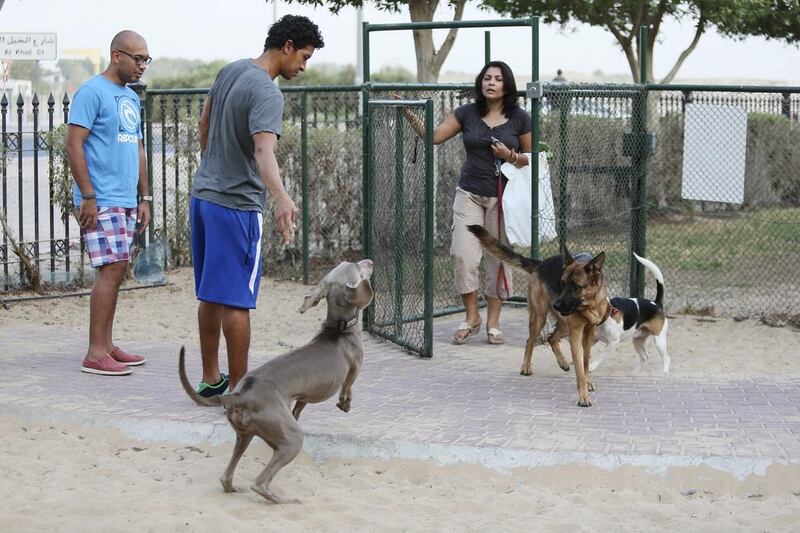ABU DHABI // The deaths of four dogs and the near-deaths of 10 others has prompted a veterinary surgeon to warn pet owners of the danger posed to animals from the late summer heat.
Dr Sara Elliott, who works at the British Veterinary Hospital in Dubai, said her practice had seen a rise in the number of emergency admissions and deaths during the hot months of 2015.
“We have had four dogs die this year on the way into our practice and successfully revived 10 more from heat-related issues since it started getting really hot,” she said. “Who knows how many poor animals are perishing out there through negligence and ignorance.”
May and September were particularly busy months, she said.
“The difficulty in the UAE is we probably see more heatstroke in the beginning and the end of the summer because people become complacent,” she said.
Time was of essence when seeking medical attention for animals displaying symptoms related to overexposure of heat, she said.
“The first thing you do is you try to cool that pet,” she said.
Temperatures could be brought down by placing cool packs in the groin and the armpit areas, and also by using cold wet towels. Placing the animal in front of a stable supply of cool air such as an air conditioner would also help, she said.
After contacting a veterinarian to let them know of a potential emergency, the animal should be kept in a cool environment during transportation that helped prevent their condition from deteriorating, she said.
“We had three pugs arrive too late to be saved,” she said. “They had been using a concrete patio outside thanks to a specially designed dog flap on the door. The flap jammed when they were outside and they were all suffering from unrecoverable states of heatstroke within 20 minutes.”
She said this summer had been her worst in over two decades of working in the UAE.
Even saved animals could be left with damage to their brain, organs, hearing, sight, with some developing seizures and heart disease, she said.
During the summer, she said dogs should be walked and let out to play in the early morning and after the sun had set, while being provided with shade and plenty of water.
“There are some simple rules, such as don’t let your pets walk on ground that you can’t hold the palm of your hand on for 15 seconds,” she said.
Pets should also never be left in a car for any length of time, and should not be left at home for more than eight hours alone.
She also advised owners to instruct domestic helpers on how to care for animals during the summer months.
“With temporary help, there are often communication issues, cultural differences, and fear of punishment, so there needs to be very clear rules and explanations when leaving your loved ones in the hands of a stranger, or you may get a terrible shock when you return from work or vacation,” she said.
Dr Margit Muller, director of the Abu Dhabi Animal Shelter and Abu Dhabi Falcon Hospital, said dogs were more vulnerable to heat than cats due to their metabolism.
“It is also helpful to perform proper grooming, especially for long-haired pets,” she said.
In addition to the telltale symptoms of heat exhaustion, such as excessive panting, drooling, and a rapid heart rate, hot temperatures could also cause dogs to develop skin infections, she said.
esamoglou@thenational.ae






